If you’re interested in buying a home but you don’t have enough money for a down payment, then don’t worry! There are several zero down mortgage options available to you. We will discuss the different mortgage options that require no down payment or have low down payment requirements, and we’ll also cover how to qualify for them.
Subscribe to our blog to receive notifications of posts that interest you!
Can you buy a house with no money down?
If you are interested in buying a house but do not have enough funds for a down payment, then there are several options you can consider. For example, government-backed loans such as VA loans for veterans and USDA loans for those wanting to purchase a home in rural areas, could help qualify you for a zero-down payment.
Additionally, there are more than 2,000 down payment assistance programs and first-time homebuyer programs available throughout the country. These programs offer grants which could help cover the cost of the down payment.
What is a 0 down payment mortgage?
A zero down payment mortgage is a type of home loan which allows you to borrow the complete purchase price of your property without having to put any money down at closing. This type of mortgage could be beneficial for first-time homebuyers or those who have limited savings.
How To Buy A Home With No Money Down
If you’re looking to buy a home without having to put down any money upfront, there are a few options you can explore. Some of the home loan options available to eligible borrowers include VA Loans, USDA, and FHA Financing.
No Down Payment Mortgage Options
Let’s further explore these options and their eligibility requirements to determine which could be the best fit for you.
VA Loans
VA financing is an option for eligible service members, veterans, and surviving spouses. These loans are partially backed by the Department of Veterans Affairs and offer flexible terms tailored to veterans’ needs, including zero down payments.
VA Loan Eligibility For Zero Down
To determine whether you are eligible for a VA Home Loan Certificate, there are certain service requirements you must meet. Typically, your eligibility will depend on serving at least 90 days of active duty during wartime, 181 days during peacetime, or 6 years in the National Guard or Reserves. Additionally, spouses of service members who passed away while on active duty or because of a service-related disability may also qualify.
Apply For A Veteran Home Loan
USDA Loans
USDA loans are a government-backed mortgage option for homebuyers looking to purchase in a designated rural area. These loans, guaranteed by the U.S. Department of Agriculture, eliminate the need for a down payment and private mortgage insurance (PMI).
USDA Loan Eligibility For Zero Down
To be eligible for a USDA loan, you and the property must meet certain requirements. First, the property you intend to purchase must be in a designated rural area. Additionally, your income must fall within the program’s set income limits, and you must have a credit score of at least 640.
Apply For A USDA Laon
Physician Mortgage Loans
Physician loans are a unique mortgage option specifically designed for medical professionals like doctors, dentists, veterinarians, physician assistances, etc. These loans cater to the challenges faced by doctors early in their careers, particularly those with high student loan debt.
Doctor Loan Requirements For Zero Down
Doctor Loans typically require a credit score ranging between 680-740, employment verification, evaluation of income and debt-to-income ratio, possession of a valid medical license, and the borrowing limit varies by lender and location. Physician loan programs are more flexible with high student loan debt and consider the future earning potential of the borrower.
Apply For A Physician Loan
FHA 100 Financing
This program provides homebuyers with 100% financing without requiring a down payment. However, closing costs are still required. This is achieved through a combination of a 1st and 2nd mortgage.
This DPA program can be used to obtain an FHA loan. The 2nd mortgage can be up to 3.5% of the sales price or the, appraised value, whichever is less. The term for the 2nd mortgage is 10 years.
FHA 100 Financing Eligibility For Zero Down
To qualify for the program, you need to have a minimum credit score of 620 and a maximum Debt-to-Income (DTI) ratio of 45%. You must complete a Homebuyer Education course. And the eligible properties for financing are defined by FHA guidelines based on the maximum HUD county limit. The program covers single-family homes, duplexes, manufactured homes, PUDs, townhouses, and condos.
Apply For A 0 Down FHA Loan
Low Down Payment Mortgage Options
If you are not eligible for a zero down payment mortgage, then there’s no need to worry! You can still explore other home loan options that offer low down payments. Let’s examine these loan options and their requirements more closely to determine which one would be the best fit for your specific needs.
Conventional Loans
Conventional loans are a good choice for homebuyers who want more options than government-backed programs can provide. They are not insured by the government; however, they follow standards set by Fannie Mae and Freddie Mac. Compared to FHA or VA loans, conventional loans offer more freedom of choice. They provide a wider range of down payment options and greater flexibility in choosing mortgage insurance.
Conventional 97 Loans
Conventional 97 loans allow you to make a down payment of only 3% on a home, resulting in a loan-to-value ratio of 97%. This means that you are borrowing 97% of the home’s value and making a 3% down payment.
Conventional 97 Loan Requirements
To be eligible for a conventional 97 mortgage, you need to have a credit score of at least 620 or 660, depending on the program. Additionally, you must meet the income limits established by the loan. You also must have the intention to reside in the property as your primary residence. Usually, a homebuyer education course is required, but you should keep in mind that these requirements can vary depending on your lender.
Conventional Loans with Down Payment Assistance (DPA)
If you meet the eligibility requirements, then you may qualify for a conventional loan with zero down payment by combining it with any state DPA.
Apply For A Conventional Loan
FHA loans are a government-backed program to make homeownership more accessible through more lenient lending requirements. With an FHA loan, a borrower could put down as little as 3.5% if their credit score is at least 580, or 10% if their credit score is at least 500. Nevertheless, there is a trade-off; regardless of the amount you put down, there is a requirement to pay for mortgage insurance.
FHA Loan Requirements
To be eligible for most FHA loans, you’ll need to have a minimum credit score of 580. The preferred debt-to-Income (DTI) ratio for FHA loans is 43%, although this may vary depending on your credit score and could go up to 57%. If your credit score is 580 or higher, then you could put down as little as 3.5% of the total loan amount. However, if your credit score falls between 500 and 579, then you’ll need to pay a larger down payment of 10%.
Apply For An FHA Loan
HomeReady Fannie Mae
HomeReady, offered by Fannie Mae, is a home financing program designed to aid low to moderate-income individuals in purchasing homes, especially in areas with high housing costs. One of its key advantages is the low-down payment requirement, set at just 3%. Furthermore, eligible borrowers may qualify for an additional benefit of a $2,500 credit, which could be applied towards both the down payment and closing costs.
Fannie Mae HomeReady Requirements
To be eligible for the HomeReady Program, you must have a credit score of at least 620 and meet certain income limits, which can vary depending on the location of the property. What sets HomeReady apart is its flexibility in considering a broader range of income sources. This means that rental income from tenants or earnings from additional properties you own can be factored in to meet the income requirements.
Apply For A HomeReady Loan
Home Possible Freddie Mac
Freddie Mac’s Home Possible mortgage program is another option tailored for low- to moderate-income borrowers who can manage a 3% down payment. Like HomeReady, private mortgage insurance (PMI) is discounted but required until your loan balance reaches at least 80% of the home’s value.
Freddie Mac Home Possible Requirements
To qualify for a Freddie Mac Home Possible Loan, you’ll need a minimum credit score of 620. Additionally, borrowers must meet specific income requirements, which are determined based on the median income in the area where the property is located.
Apply For A Home Possible Loan
Good Neighbor Next Door Program
The Good Neighbor Next Door program offers significant benefits to teachers, law enforcement officers, firefighters, and emergency medical technicians by providing a 50% discount on eligible homes in revitalization areas. Eligible participants must commit to living in the home as their primary residence for at least three years. This program aims to strengthen communities by encouraging these essential professionals to become homeowners in the neighborhoods they serve.
Piggyback Loans
A Piggyback Loan helps homebuyers avoid private mortgage insurance and lowers their down payment on a higher-value mortgage. It involves taking out two loans instead of one, a primary mortgage and a smaller second mortgage. The borrower covers part of the down payment with the second loan.
Pros and Cons of a Zero Down Payment Mortgage
It’s important to carefully weigh the pros and cons before committing to a home purchase with no down payment. Here are some key factors to consider before deciding whether this option is right for you.
Pros of a Zero Down Payment Home Loan
- Faster Path to Homeownership: If you’re struggling to save up for a down payment, then a zero down mortgage could help you become a homeowner faster. This is especially beneficial in a seller’s market, where home prices are increasing rapidly.
- Frees Up Cash for Other Expenses: A zero down payment means more cash for other expenses associated with purchasing a home, such as closing costs, moving fees, and unexpected repairs.
- Accessibility for First-Time Buyers: Zero down options make homeownership more achievable for first-time buyers, especially young professionals or those who haven’t saved enough for a down payment.
Cons of a Zero Down Payment Home Loan
- Higher Interest Rates: As you would be borrowing a larger sum of money, you’re likely to face a higher interest rate. This means that you could end up paying much more money in interest over the loan’s life.
- Limited Equity: Equity refers to the difference between your home’s value and what you owe on the mortgage. With no down payment, you’ll have less equity initially. This can be risky if you need to sell your home soon, especially if home prices have dropped.
- Potential for Additional Fees: Some zero down mortgages come with additional fees, such as private mortgage insurance (PMI), which further increases your overall costs.
Other Way To Buy A House With No Money Down
If you don’t qualify for a home loan with a zero down payment or other traditional low-down payment financing, then there are some additional avenues to explore. Here are some additional strategies to consider that could help you purchase a home with no money down.
Gift Funds
Family members could contribute towards your down payment through a gift fund. The guidelines regarding gift funds vary depending on your mortgage product. If you’re contemplating the use of gift funds for your down payment, then it’s important that you share this with your loan officer. They will be able to determine the mortgage product that will best suit your specific financial situation
Down Payment Assistance and Grants
There are various government programs and nonprofit organizations which provide down payment assistance, or grants, to those who qualify as homebuyers. Typically, these programs are designed to help low-to-moderate income earners, or first-time buyers. To find out if you’re eligible, research the local programs available in your area and speak with a Loan Officer.
Borrow from 401(k)
If you’ve invested in a 401(k), then consider using your funds for a down payment on a house. This allows you to borrow against your retirement savings for the down payment. Keep in mind that you’re essentially borrowing your own money and there are tax implications and penalties to consider. Make sure you understand these drawbacks before utilizing a 401(k) loan.
Use Your Savings
This might seem obvious, but diligently saving for a down payment is a great strategy. Even a small percentage can be a good starting point. Explore high-yield savings accounts or consider budgeting to consistently add to your down payment savings.
Cash Out On Investments
If you have investments that have grown significantly, then you might consider cashing out a portion to use towards your down payment. This strategy comes with the risk of losing potential future earnings on the investment. Consult with a financial advisor before making any decisions regarding your investment portfolio.
How To Find No Down Payment Mortgage Lenders
Direct Mortgage Loans offers a variety of no down payment home loans. These include VA, USDA, 100% FHA Financing, and first-time home buyer programs. Explore our loan options and speak with a Loan Officer to learn more.
FAQ’s About Buying A House With No Money Down
Can I buy a house with no money down and no closing costs?
If you’re looking to purchase a house without paying any down payment and without having to cover the closing costs, then there are a few options available to you. One option is to consider obtaining a zero down loan and asking the seller to cover the closing costs, which is also known as seller concessions. Another option is to allow the lender to pay for your closing costs by using discount points and lender credits, but keep in mind that this usually involves a higher interest rate.
If you’re eligible for down payment assistance, then the funds could also help you with some of the closing costs. Keep in mind that it’s unlikely to cover the entire down payment and all loan fees. So, you’ll still be responsible for paying some of the expenses yourself.
Are there zero down home loans for first time buyers?
As a first-time homebuyer, you could have access to certain mortgage programs which allow you to buy a home without a down payment. Additionally, each state offers grants and programs designed specifically for first-time homebuyers to aid in the costs associated with homeownership. We recommend exploring these programs and speaking with a Loan Officer to determine if you qualify for any of them.
What credit score is needed to buy a house with no money down?
The credit score required for purchasing a home with no down payment varies based on the loan program and the lender’s criteria. Here’s a general overview of credit score requirements.
- VA Loan: Minimum credit score of 620.
- USDA Loan: A credit score of at least 640 is typically required.
- Physician Mortgage: Typically ranges from 680 to 740.
- FHA 100% Financing: Minimum credit score of 620.
These scores serve as benchmarks, but it’s important to note that other factors such as income, debt-to-income ratio, and employment history also play crucial roles in loan approval.
Can you buy a mobile home with no money down?
While traditional financing for mobile homes often requires a down payment, there are ways to achieve homeownership with minimal upfront costs. The USDA’s Guaranteed Loan program allows qualified low-to-moderate income buyers in rural areas to finance a manufactured home, potentially with no down payment required. Additionally, the FHA 100% Loan Program can be used to finance manufactured or mobile homes. However, this only applies to double or triple-wide homes.
Can you buy an investment property with no money down?
It is not guaranteed to find a “no money down” option for investment properties. However, you can use the accumulated value in your primary residence to help with the down payment. You can do this by taking out a home equity loan, a HELOC, or a cash-out refinance to fund the down payment for an investment property.
This may seem like a good option, but it does come with additional debt and risks for your own home. Before deciding how to proceed, assess your financial situation and speak with a loan officer. A loan officer can help you understand the risks and benefits, explain various home equity options, and ensure that this method aligns with your overall investment objectives.
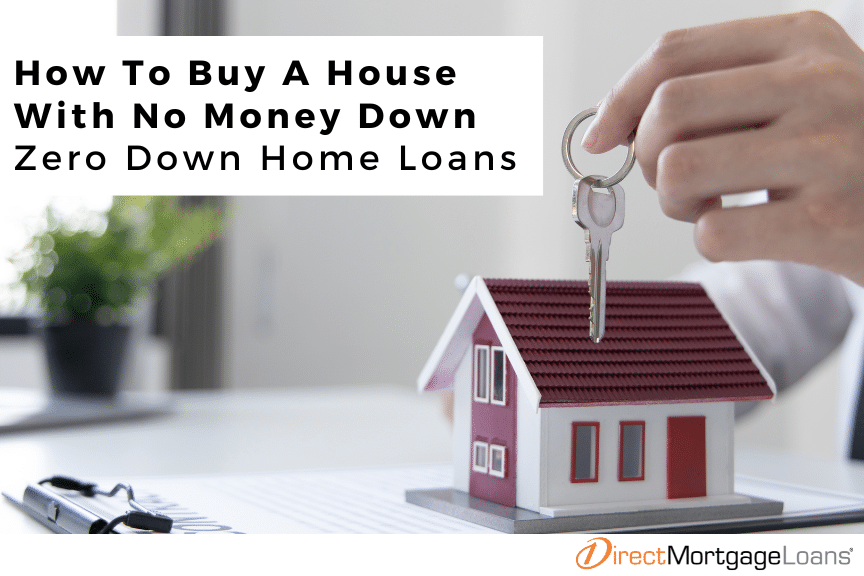
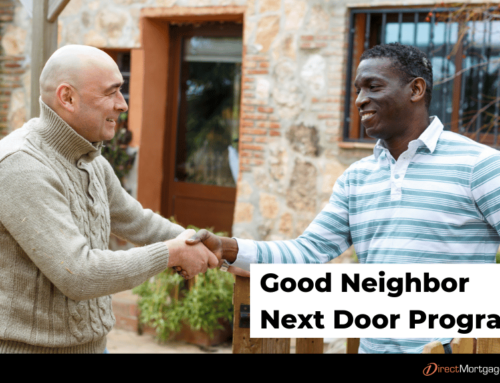
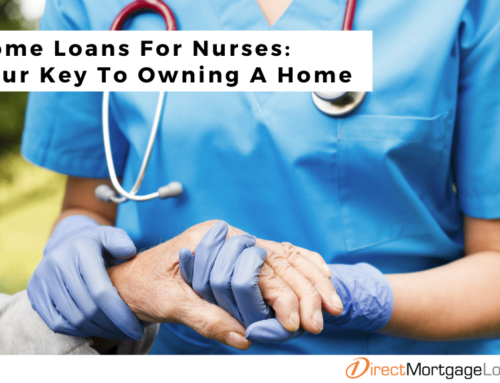

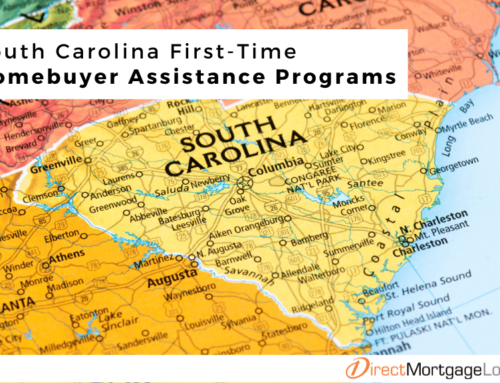
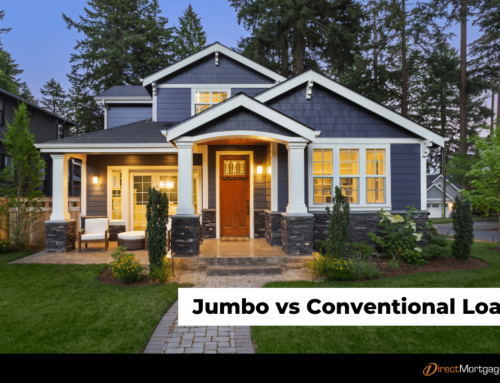
Leave A Comment
You must be logged in to post a comment.